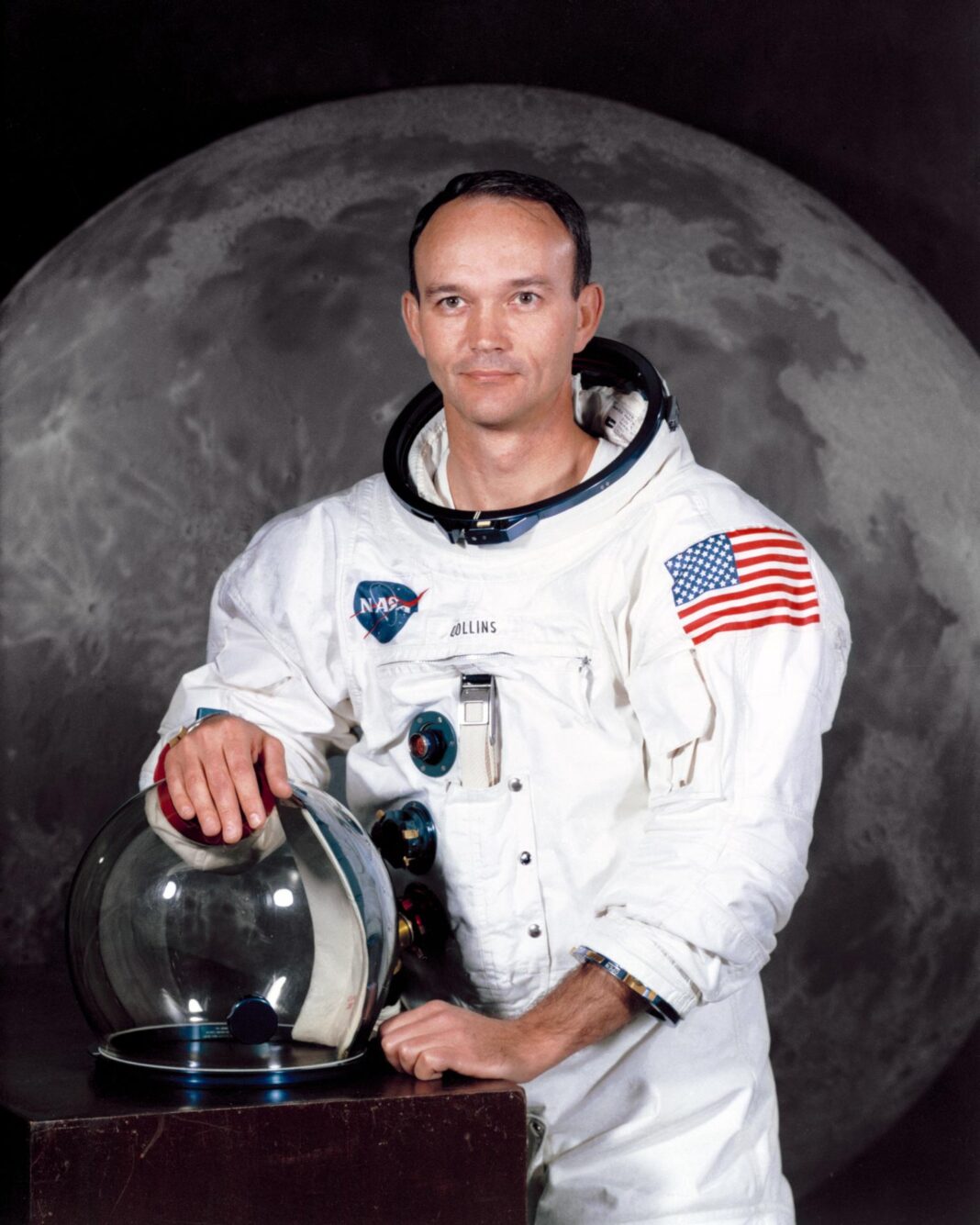On Wednesday, Michael Collins, a NASA Astronaut and third crewmember to the Apollo 11 mission that landed us on the moon, died at age 90 from cancer, according to a tweet published by Collins’ family to his account.
“We regret to share that our beloved father and grandfather passed away today, after a valiant battle with cancer,” Collins’ family said in a statement on Twitter.
“He spent his final days peacefully, with his family by his side. Mike always faced the challenge of life with grace and humility, and faced this, his final challenge, in the same way. We will miss him terribly. Yet we also know how lucky Mike felt to have lived the life he did.”
The community took to social media immediately upon hearing of Collins’ passing:
“Today the nation lost a true pioneer and lifelong advocate for exploration in astronaut Michael Collins,” acting NASA Administrator Steve Jurczyk said in a statement. “Whether his work was behind the scenes or on full view, his legacy will always be as one of the leaders who took America’s first steps into the cosmos. And his spirit will go with us as we venture toward farther horizons.”
The last remaining crewmember of the Apollo 11 mission, acclaimed NASA Astronaut Buzz Aldrin, took to Twitter after hearing the news of Collins’ passing, and tweeted a picture of he, Collins, and Neil Armstrong, depicting the three crewmates laughing
“Dear Mike, Wherever you have been or will be, you will always have the Fire to Carry us deftly to new heights and to the future,” Aldrin tweeted alongside the picture.
Buzz Aldrin, April 28, 2021 via Twitter
U.S. President Joe Biden released a heartfelt statement from The White House Briefing Room:
Michael Collins lived a life of service to our country. From his time in the Air Force, to his career with NASA, to his service at the State Department, to his leadership of the Smithsonian National Air and Space Museum; Michael Collins both wrote and helped tell the story of our nation’s remarkable accomplishments in space.
Many remember him as the astronaut who was by himself, orbiting the Moon as Buzz Aldrin and Neil Armstrong walked on the lunar surface. He may not have received equal glory, but he was an equal partner, reminding our nation about the importance of collaboration in service of great goals. From his vantage point high above the Earth, he reminded us of the fragility of our own planet, and called on us to care for it like the treasure it is.
Although, in his life of accomplishment, he earned many titles and achieved the rank of general, he demanded that everyone call him, simply, Mike.
Our prayers are with General Collins’ family. Godspeed, Mike.
Inspired by John Glenn’s 1962 flight, which earned Glenn the title of the first American to orbit the room, Collins applied to NASA, eventually being selected in 1963. He took his first flight aboard Gemini 10 on July 18, 1966, for a three-day mission conducting a docking test and a double rendezvous in orbit. This mission made Collins the third person in U.S. history to conduct a spacewalk.
Despite Collins’ never stepping foot on the moon himself, unlike his two crewmates Aldrin and Armstrong, Collins was instrumental to the 238,000 mile journey, which put Collins just within 69 miles of the Moon. To this day, Apollo 11 is considered to be one of the most important space exploration missions known to mankind, which ultimately ended the space race between the U.S. and Russia.
Collins is survived by two daughters and grandchildren. He was also a bestselling author, having published two books. The first, is his memoir, “Carrying the Fire: An Astronaut’s Journey,” where Collins reflected on his solitary time in orbit around the moon. He is often referred to as “the loneliest man in history,” taking meaning away from a particular provision in his memoir:
“I am alone now, truly alone, and absolutely isolated from any known life,” Collins wrote in his memoir. “I am it. If a count were taken, the score would be three billion plus two over on the other side of the moon, and one plus God knows what on this side.”
The second book is a children’s book, “Flying to the Moon: An Astronaut’s Story.”
“It’s human nature to stretch, to go, to see, to understand,” Collins said on the 10th anniversary of the moon landing in 1979. “Exploration is not a choice really — it’s an imperative, and it’s simply a matter of timing as to when the option is exercised.”
NASA’s announcement ended by praising Collins for his attitude and drive towards space exploration:
“His own signature accomplishments, his writings about his experiences, and his leadership of the National Air and Space Museum helped gain wide exposure for the work of all the men and women who have helped our nation push itself to greatness in aviation and space. There is no doubt he inspired a new generation of scientists, engineers, test pilots, and astronauts.”
For more of Andrew Rossow’s work, please click here.









